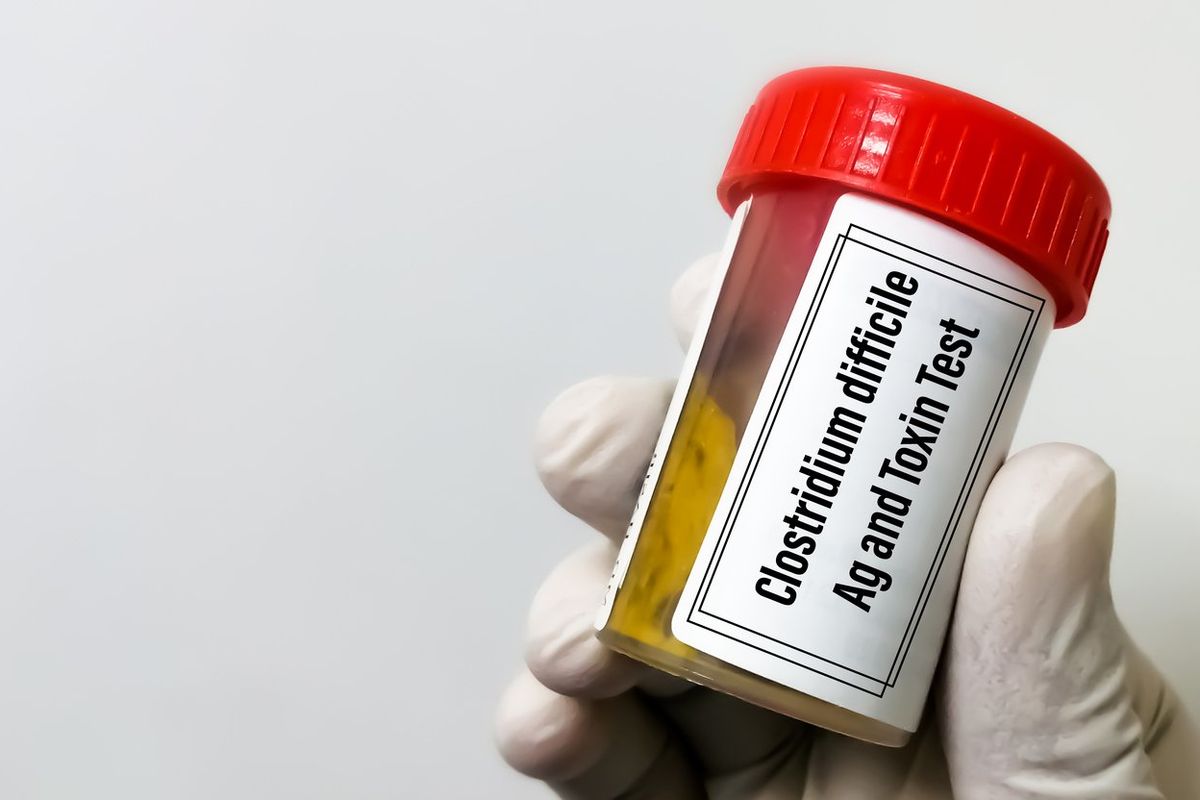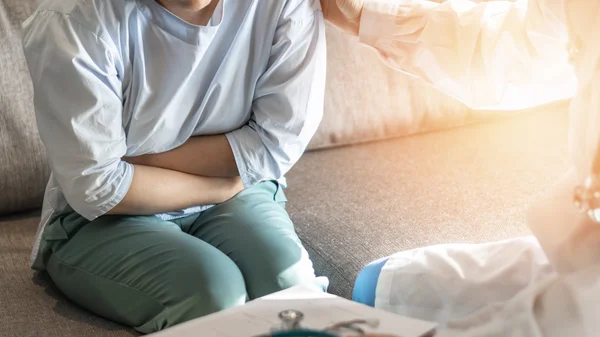If you haven’t heard of C. diff before, it’s the common name for a bacterial infection in the colon caused by the bacterium Clostridioides difficile. C. diff bacterial spores are all around in the environment, including healthcare settings, non-healthcare settings and even on the soles of shoes. Unfortunately, that means it can easily be transferred into your colon through your mouth. If you touch an object that has C. diff on it and you bring your hand to your mouth, you can introduce the bacterium into your gastrointestinal (GI) system. You can also get the bacterium from someone who has it on their skin. However, even if you ingest C. diff spores, you only get an infection if they are able to grow in the colon.
C. diff is an aggressive bacterium that causes serious problems among almost a half a million people in the United States each year. And up to 30,000 people die from a C. diff infection annually. Women are more likely than men to get a C. diff infection, but the reason is still unknown.
How does C. diff cause infection?
Everyone has bacteria in their colon. Many are good bacteria and help keep your colon healthy by helping with digestion, making various vitamins and keeping the harmful bacteria from taking over. Even dangerous bacteria, like C. diff, might not make you sick if you have a healthy gut microbiome. Many people have C. diff in their colon and never become ill.
C.diff bacteria enter the body after swallowing C. diff spores. If you’re sick or have a weakened immune system, C. diff can be dangerous. Most people get C. diff infection after taking antibiotics that, while are often necessary, can also kill off helpful bacteria along with the bad bugs that caused the infection. The C. diff bacterium grows and multiplies, releasing toxins that cause damage to your colon lining, causing symptoms that make you feel sick.
What are the risk factors for C. diff?
C. diff can affect anyone. However, you are more likely to a C. diff infection if you:
- Are taking antibiotics for a different infection, because antibiotics also destroy healthy bacteria that might normally prevent a C. diff infection. The longer the treatment course of antibiotics, the greater the risk.
- Have recently been in a nursing home or hospital. About 2 in 10 people in medical facilities contract a C. diff infection.
- Have a weakened immune system from an illness or a medication like a corticosteroid, because it can suppress your ability to fight infections.
- Have a bowel disease, like Crohn’s disease or ulcerative colitis, because they weaken your colon lining over time.
- Are taking proton pump inhibitors (often called PPIs) or other acid-suppressing medications unnecessarily.
- Have a history of C. diff infections. Up to 1 in 4 people who have C. diff will have a relapse or get the infection again at least once more.
- Are 65 or older.
Remember: You don’t have to have any of the above risk factors to get C. diff. Anyone is at risk.
C. diff symptoms
At first,C. diff symptoms may seem like another type of GI illness, such as a virus or food poisoning. The symptoms may be mild at first, like having a few bouts of diarrhea or watery stool. Something that might stand out, though, is a very particular strong odor, unlike what you might usually notice. These episodes become more frequent as the infection gets worse. Aside from diarrhea, C. diff symptoms can include:
- Stomach pain and cramping
- Nausea and vomiting
- Loss of appetite
- Abdominal swelling
- Fever
- Rapid heart rate
- Blood in the stool
You can also get dehydrated from the infection because of the frequent diarrhea.
C. diff diagnosis
If you’re experiencing any of the symptoms and are at risk, your doctor might request a stool specimen to be examined in a lab.
If your symptoms are severe or you aren’t responding to the treatment, your doctor may ask for blood tests and imaging tests, such as X-rays, magnetic resonance imaging (MRI) or a colonoscopy to see if there is damage in your colon.
C. diff treatment
If you contract a C. diff infection while taking antibiotics for another infection, and the illness is mild, your healthcare provider may recommend that you simply stop the medication. If that doesn’t help, antibiotics that can treat C. diff infection are:
- Vancomycin
- Fidaxomicin
- Metronidazole (for mild infections only)
If you take these medications at home, it is important that you finish the whole prescription, or the bacterium may regrow and your infection can return. It also may become harder to treat. If the infection is severe and you are dehydrated, you may have to be admitted to the hospital so you can get antibiotics and fluids through an intravenous (IV).
Oral and rectal microbiome-based treatments have recently been FDA-approved and offer a new option to help prevent recurrent C. diff infections.
How do you know if C. diff is getting better?
You should start seeing improvements in your symptoms within three to five days of starting antibiotics (but you should always finish your entire prescription). Some people do need more antibiotics to get rid of the infection completely though. Up to 1 in 4 people who have C. diff for the first time will get it again, so contact your HCP right away if your symptoms return. Also tell your dentist and other HCPs that you’ve had C. diff to avoid taking any antibiotics you don’t need.
You can reduce your risk of getting or spreading C. diff with some simple steps:
- Make sure all healthcare workers wash their hands before they touch you — especially in a hospital.
- Wash your own hands well with soap and water every time you use the bathroom and before and after eating or drinking. Be sure to use actual soap and water because C. diff spores are resistant to ethanol, also called ethyl alcohol, which is found in most hand sanitizers.
- If you have C. diff and you have access to a second bathroom, only use that one so others aren’t exposed. If this isn’t possible, thoroughly clean the toilet seat, toilet handle, faucets and doorknob with a bleach-based cleaner whenever you use the bathroom.
- Clean common home surfaces (door knobs, light switches, etc.) with a bleach-based cleaner.
- Shower with soap to remove C. diff from your skin.
This resource was created with support from Seres Therapeutics and Nestle Health Science.
- Doctors Said It Was Probably Just a Stomach Bug — It Wound Up Being C. Diff ›
- Are We Overusing Antibiotics? ›
- Lo que debes saber sobre la C. difficile - HealthyWomen ›
- What Is C. diff? - HealthyWomen ›
- 11 cosas que puedes hacer para reducir el riesgo de contagio de la C. difficile - HealthyWomen ›
- Q&A: What Is C. Diff? - HealthyWomen ›






